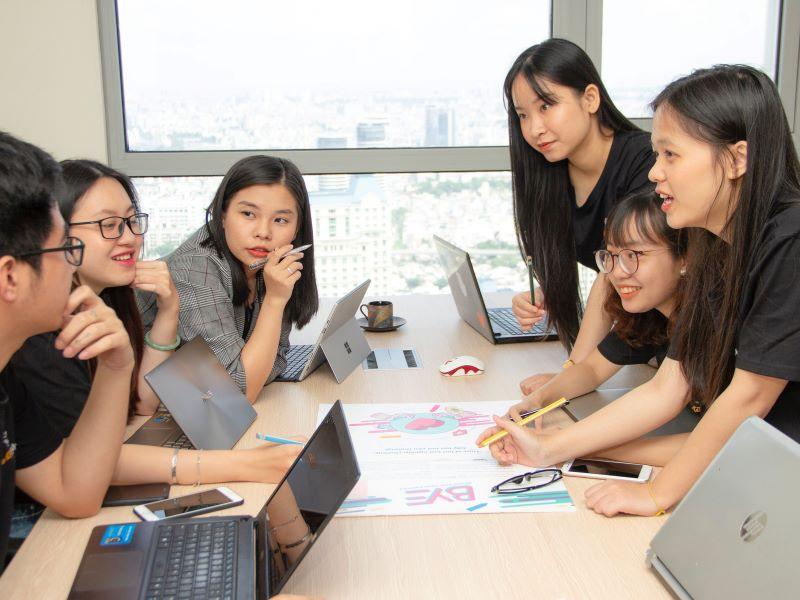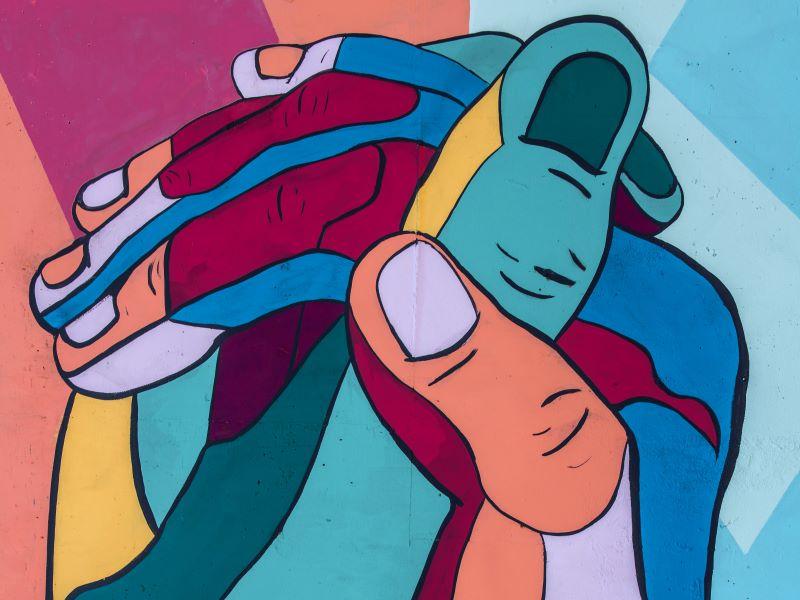
Relationship building among globally diverse students in a borderless university
Monika Foster offers insights into why and how to encourage relationship-building between global learners by celebrating diversity and encouraging collaboration in teaching, learning and assessment

Developing positive relationships between students from diverse backgrounds, sometimes framed as tensions between local and non-local students on university campus, has always been a challenging issue, presenting a barrier to effective internationalisation in higher education. The ways we engage with learners are changing with the explosion of online, distance, flexible learning, accelerated by the pandemic. This presents a challenge to reconsider how we prepare this and future generations of learners for positive relationship-building in the hyperconnected world.
The opportunities to foster relationships and connections between globally diverse learners, regardless of cultural or geographical background, are grounded in an inclusive approach to teaching and learning designed for all students. Our global learners bring with them cultural capital, which can be enhanced further by developing skills for a positive engagement with others.
This is the focus of the book I co-authored with David Killick, and here I share a few of the key lessons.
All learners are diverse
Every learner brings with them cultural capital, no matter where they come from. This capital is extended by activities that celebrate diverse views and backgrounds, and, in turn, encourage the development of global perspectives for all learners. Plan in activities that celebrate diverse groups of students, such as facilitated interactions among students from different backgrounds, ensuring that students extend their friendship networks, including online, build in community and civic engagement activities, multicultural courses and racial awareness workshops.
Relationships for growth
Forming new, growth-fostering relationships enables learners to understand who they are better and transforms their perspectives, from generalised views to personalised ones. Develop learners’ awareness about the benefits of new relationships, provide them with skills to try to form relationships and fail, and try again, and appreciate learning from relationships. A two-way virtual learning experience can be arranged across borders, for example with the students at international partner university or college, to exchange intercultural information in structured activities. Why not explore diversity at home via a one-day event with structured cultural activities prepared by the various groups of students.
Engage learners as partners
Your learners are your biggest asset. Engage students in designing modules or courses, including the development of learning outcomes or teaching materials. This allows all students to share their perspectives and share a sense of a joint achievement. The students can design a module on diversity, or activities to stimulate intercultural learning. The creativity of the students is endless and can extend to online collaborations across borders on courses shared between UK universities and overseas partners.
The power of group work
Globally diverse students often quote learning from different cultures as the reason for choosing a course. Create the right conditions for learners to participate in a constructive and positive group work by forming groups in which learning from diverse peers can happen. Address any stereotypes and prejudice by stressing mutual benefits and understanding. Ensure that learners are clear about the common purpose and their roles in the group, before moving on to perform flexibly together to achieve the task or a goal. Ask your learners to design a one-day outdoor activity or a collaborative task with students from other courses. Equip and empower students with the techniques to recognise conversation patterns, to communicate and cooperate successfully to fully benefit from group work and achieve a common goal.
Assessment for collaboration
Engaging globally diverse learners in designing assessment provides further opportunities for relationship building and collaboration across cultures and backgrounds. Invite learners who recognise the power of working with others to form multicultural groups early in the programme – either from within the same programme, across programmes or even across borders, with learners on the same programme at an overseas partner institution. They can take part in intercultural activities to get to know each other throughout the course of learning, and then collaborate to complete group assessment activities together.
Activities outside the classroom
Consider optional activities that carry a sense of purpose, such as volunteering, community projects, contribution to the local community at the university or beyond, to extend the learners’ sense of citizenships and achievement. Diverse learners working together to complete a community project or a university contribution get to know each other as individuals outside the classroom and extend their social capital for a common purpose.
Strategies for developing relationships between globally diverse students can be purposefully designed into the curriculum to foster learner empowerment and interactions. They enable learners to build relationships with those whom they perceive to be different from themselves, a powerful tool for equity and inclusion within a borderless university.
Monika Foster is a National Teaching Fellow and head of Sunderland Business School at the .
This guidance is based on the book she co-authored with David Killick: .


